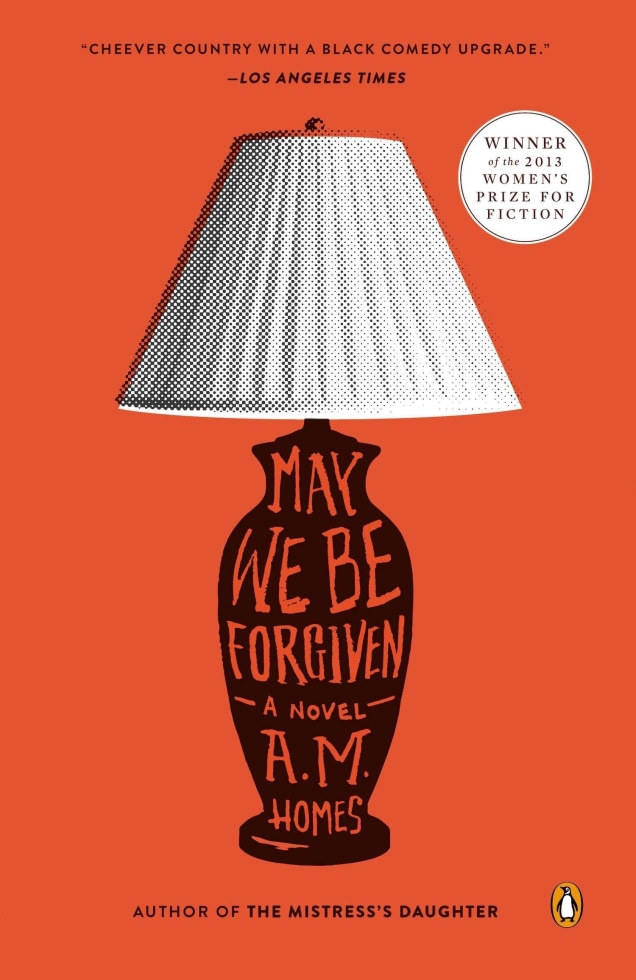
May We Be Forgiven
Oh, Brother
A sick sibling bond drives A. M. Homes’ antic take on postmodern life (and how we might be redeemed from it).
By Kate Christensen
May We Be Forgiven (Viking), A.M. Homes' sixth novel and her first in six years, tells the story of rivalrous, psychically intertwined brothers in a relationship that has shades of Cain and Abel. George Silver is a psychopathic golden-boy TV producer who's living the American dream in Westchester County, New York, with his fetching wife, Jane, and their two brilliant kids. Harold, George's childless, hapless, Nixon-scholar brother, steps into George's shoes- and life- after George kills two people in a car accident and is sent to a psych ward. George escapes just long enough to smash his wife's head in with a lamp- while she's lying asleep in their marital bed with Harold- and is promptly reinstitutionalized.
Fasten your seat belts: We're only on page 14 of a 480-page book. After Jane's murder, Harold gradually assumes responsibility for his brother's house and children, along with an ever-growing cast of other intimates- among them Ricardo, the sole survivor of his brother's car crash, a hyper-active, resentful preadolescent; Cheryl, a married woman he meets on an online-dating site; and the demented elderly parents of a woman who stalks him and then disappears.
May We Be Forgiven is an episodic picaresque spiked with suburban surrealism and quotidian absurdity, casual violence and sex, matter-of-factly bizarre plot turns, and a panoply of human eccentricities borne by an enormous cast of wacky characters. But it is also a big American story with big American themes, the saga of the triumph of a new kind of self-invented nuclear family over cynicism, apathy, loneliness, greed, and technological tyranny.
Easily Homes' most ambitious work to date, this novel has a strong moral core, neither didactic no judgmental, that holds out the possibility of redemption through connection. This theme is strikingly incongruous with Homes' trademark cheeky, dead-pan, take-no prisoners style- it reads as if Kurt Vonnegut had carjacked a Jonathan Franzen novel. We will be forgiven, evidently, as well as cured of our darker predilections, if we turn off our laptops, TVs, and social media apps and sup together at the dinner table: This, maybe, is the new American Dream.